Amritsar: Bipinpreet sits before a chess set he painstakingly crafted over a month. This is no ordinary set: the pieces are uniquely designed to resemble Portuguese figures. The rook is shaped like a castle, while the king and queen evoke the charm of rural Portugal.
Bipinpreet is one of the few craftspeople in the world who specialise in creating wooden, customised chess sets. He claims that Amritsar is the only place in the world where this centuries-old art form still thrives.
While chess sets remain the core of his business, Bipinpreet has diversified into making wooden walking sticks, handmade dashboard decorations, and decorative items like horse heads and combs.
Amritsar has become the global hub for handmade wooden chess sets, supplying boards to international tournaments in the United States, Europe, and India.
“All major professional [chess] tournaments in the world are played on boards made in Amritsar,” said Rishi Sharma, owner of Chess Empire, one of the biggest manufacturing firms in Amritsar.
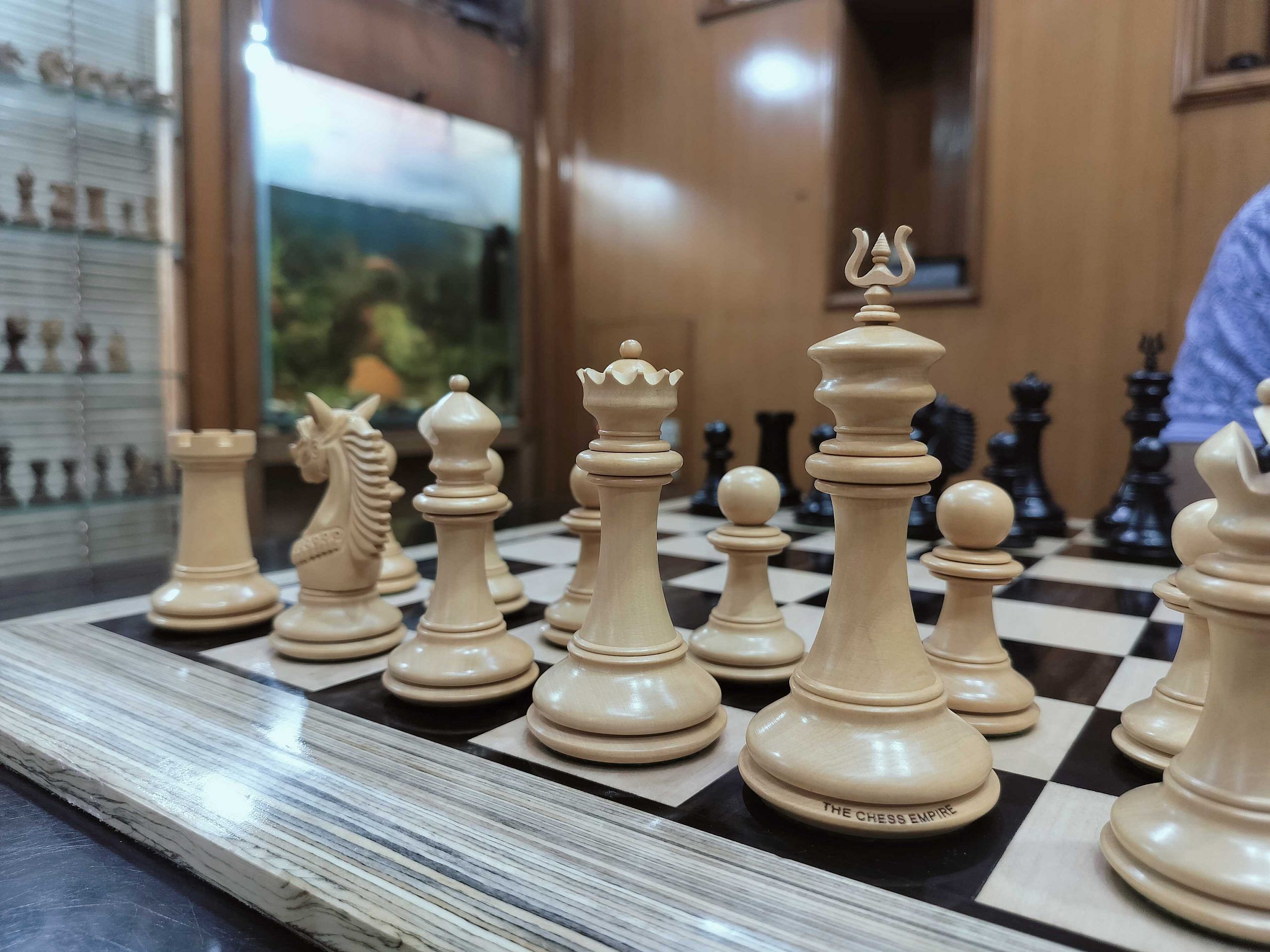
Over the past half-century, Amritsar’s chess-making industry has evolved, adapting to changing markets. The city’s reputation as a chess-making hotspot dates back to the 1800s, when it was also known for its ivory jewellery. After India banned the ivory trade in 1997, artisans shifted to working with wood. Today, the industry is set for another churn, driven by global wars and red tape. Chess-makers say that exporting materials has become expensive and, while the licensing process is now overly tedious. At the same time, inflation has eroded their primary market in Europe.
The Punjab government’s lack of support is hurting them as well. Artisans are calling for a Geographical Indication (GI) tag and initiatives to preserve and promote their craft.
“Handmade chess-making is exclusive to Amritsar and part of our heritage,” said Sharma. “Chess was invented in India, but the government is not doing enough to recognise us or the game.”
Punjab’s culture minister Anmol Gagan did not respond to ThePrint’s request for a comment.
A generational craft
Bipinpreet’s cabin is full of newspaper clippings and certificates celebrating his grandfather Satnam Singh Jabbal’s achievements. Jabbal was a renowned sculptor whose works are displayed in Amritsar’s museum.
The family has been in the chess-making business for generations, with the craft passing from Jabbal to his sons, Rupinder and Jatinder, and eventually to Bipinpreet.
“I never had formal training,” Bipinpreet said, who would head to the workshop near his house every day after work. “I learned to make chess pieces just by watching my father and uncle work.”
The 23-year-old once had dreams of migrating to Canada, like many of his peers, but ultimately chose to modernise the family business. With limited resources—a small workshop and workers seated on car seats ripped out of junked vehicles—his family produces intricate and innovative chess sets. The designs range from Alexander facing Porus’ army (with Porus depicted as a turbaned Sikh) to Viking- and Japanese-themed sets.
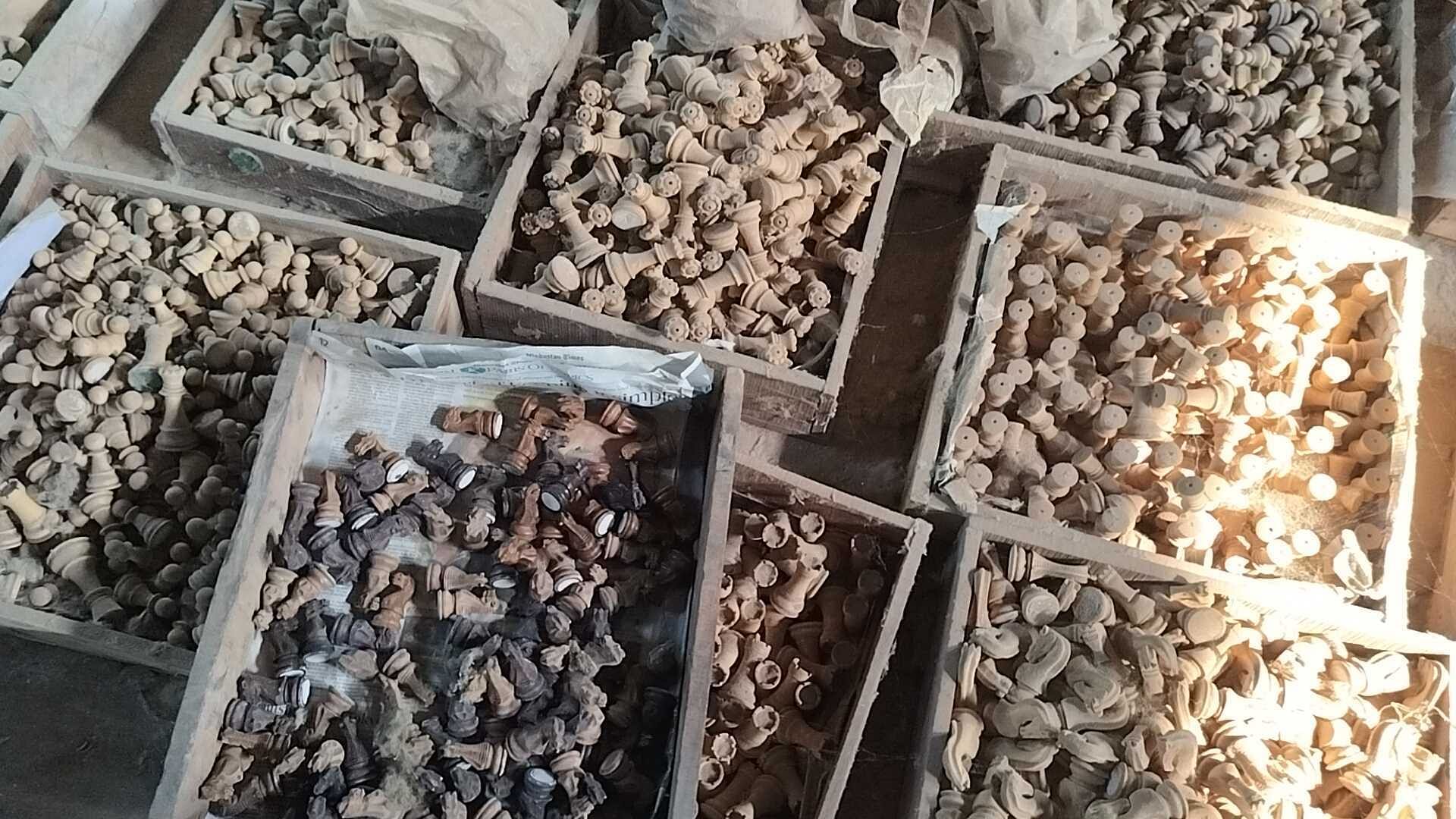
Since Europe is their primary market, India’s culture and diversity are rarely depicted in these sets—there is little to no demand.
The wooden chess sets range from Rs 1,000 for an 8-inch board to Rs 2.5 lakh for larger, customised boards. Some customers even commission bespoke boards to suit their needs.
For instance, Sharma created a chess set for British business tycoon Richard Branson, where the chess pieces represented members of his family. A prototype of this prized creation is preserved in his office. With a larger factory than Bipinpreet’s operation, Sharma boasts a diverse range of chess sets.
His creations include designs inspired by the 1920s and unique interpretations of the knight, the most challenging and flamboyant chess piece to craft.
A labour of love
At Sharma’s ‘Chess Empire’, the air is thick with wood dust. Huge logs of rosewood and sheesham wood are stacked at the factory entrance, where workers from Punjab, Bihar, and Uttar Pradesh sculpt chess pieces by hand.
First, the wood is chopped into circular logs on a sawmill, which are then further sliced into small cubes. These cubes are shaped into pawns, rooks, bishops, queens, and kings using a turning machine. Artisans refine each piece by hand, adding intricate details and a polished finish.
Knights, however, are entirely handcrafted.
“The tools used to design knights are also handcrafted. They are not available in the market—we have to design and customise them,” explained Sharma.
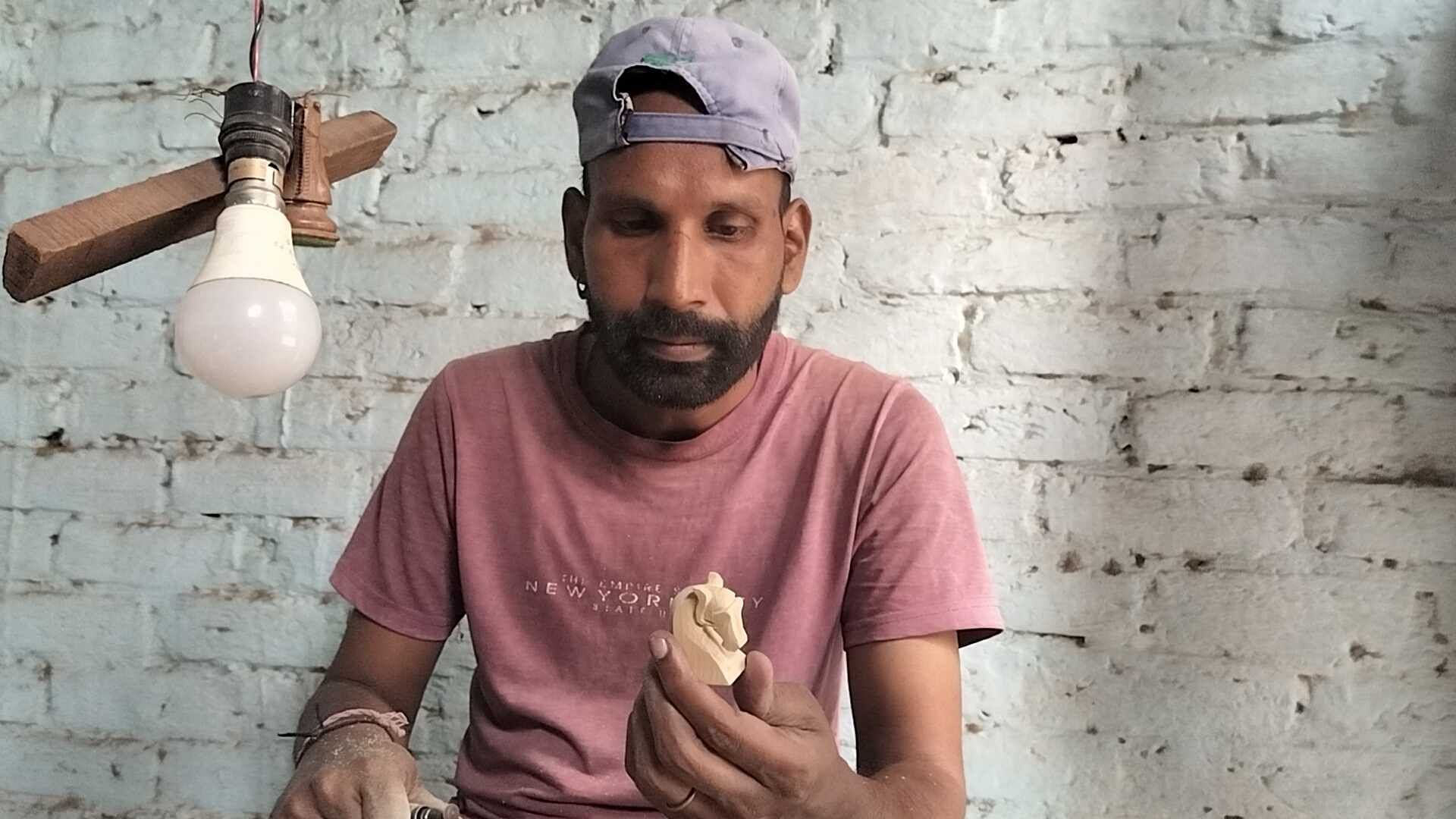
The completed pieces are then polished and usually hollowed out at the base where a magnet is added for weight and stability.
White pieces are typically crafted from boxwood or bamboo, while black pieces are made from ebony wood. Because ebony is expensive, many artisans now use rosewood, which gives a warm, reddish tint.
Ram Deena Singh, originally from Gorakhpur in Uttar Pradesh, has worked at Chess Empire for 35 years. His sons have joined him, learning the art of handmade chess-making.
Despite his decades in the trade, Singh admits he has never played chess. Still, the work is “good and stable,” which motivated him to involve his sons.
But now, the generational craftsmanship is facing an existential threat.
An industry on the brink
During the Covid-19 pandemic, the industry saw an unexpected boom as more people turned to chess for entertainment. Demand surged, with chess boards selling like hotcakes; even new businesses entered the ring, attempting to replicate the traditional craft. But many folded because they couldn’t maintain the high-quality standards that European buyers are particular about, said Bipinpreet.
The chess industry in Amritsar is very small. The total turnover is around Rs 20 crore, with only two relatively large businesses. There is no association to represent them.
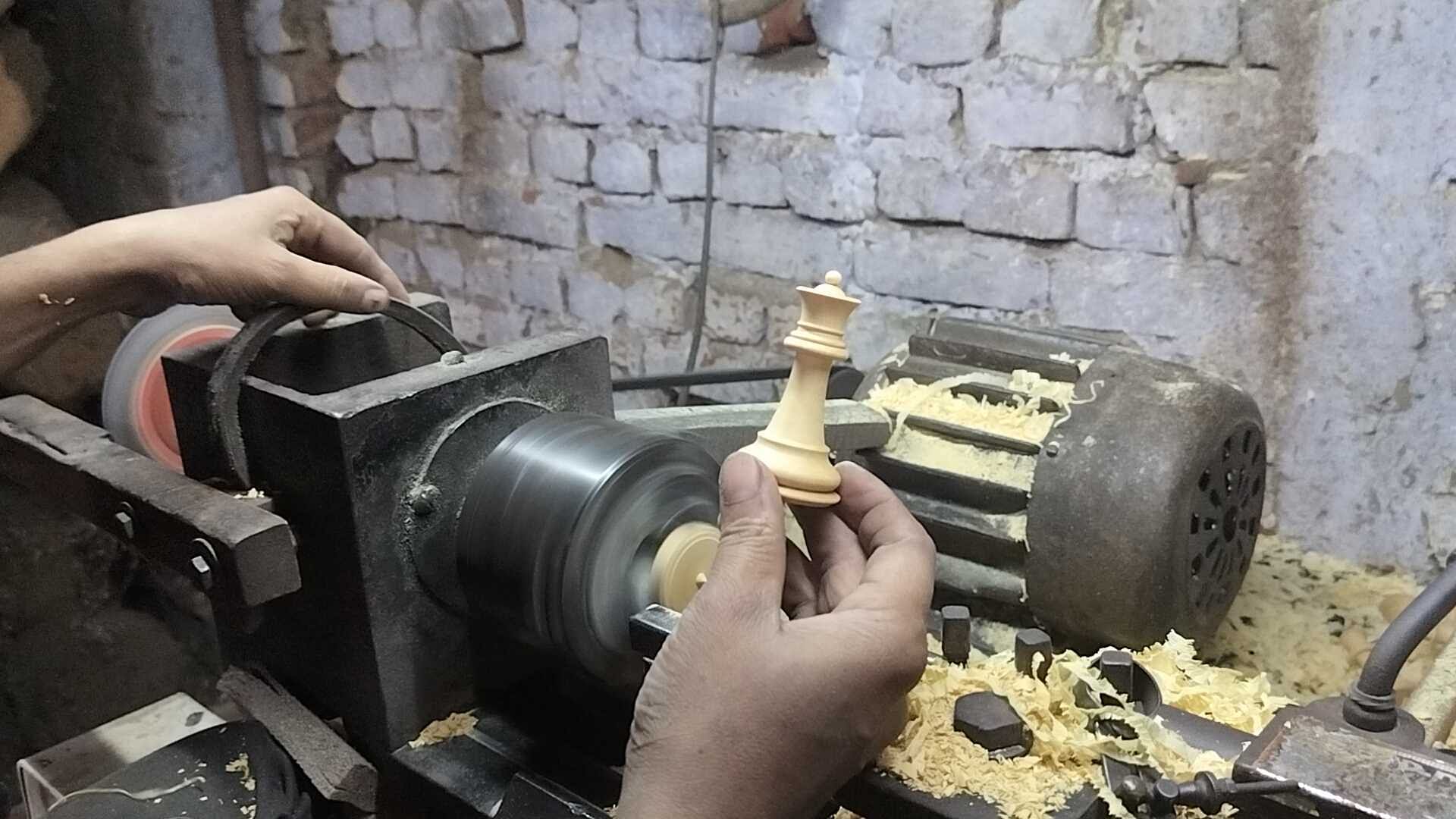
Over the last year, the industry has suffered massive losses, shrinking by up to 60 per cent compared to pre-Covid levels, according to Sharma.
“To export sheesham wood sets, we now need special certification,” he said. Each shipment requires a certificate from the customs department and costs anywhere between Rs 25,000 and Rs 30,000. Artisans must also obtain an annual certificate.
“We are losing customers. Ninety per cent of my customers have given up sheesham and rosewood sets, and the finishing with other woods isn’t very good,” he said.
Beyond bureaucratic hurdles, global conflicts in Eurasia and the Middle East have further disrupted business. “Wars have caused inflation, and people have other priorities now than buying chess sets. Many of our customers have disappeared,” Sharma said.
The holiday season is usually the peak time for chessboard makers. They are now wishing for a Christmas miracle.
(Edited by Prashant)



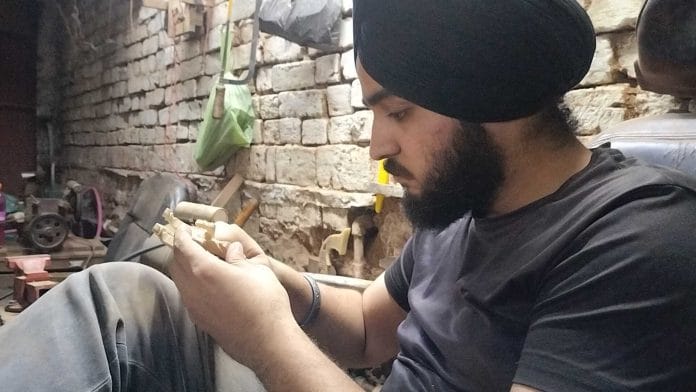



Punjab has artisans who can make wooden customised chess sets.
While Tamil Nadu has young talents who take the chess world by storm and make India proud time and again.
Shows the difference between the two cultures.
One is all about brawn, the other is all about brain.